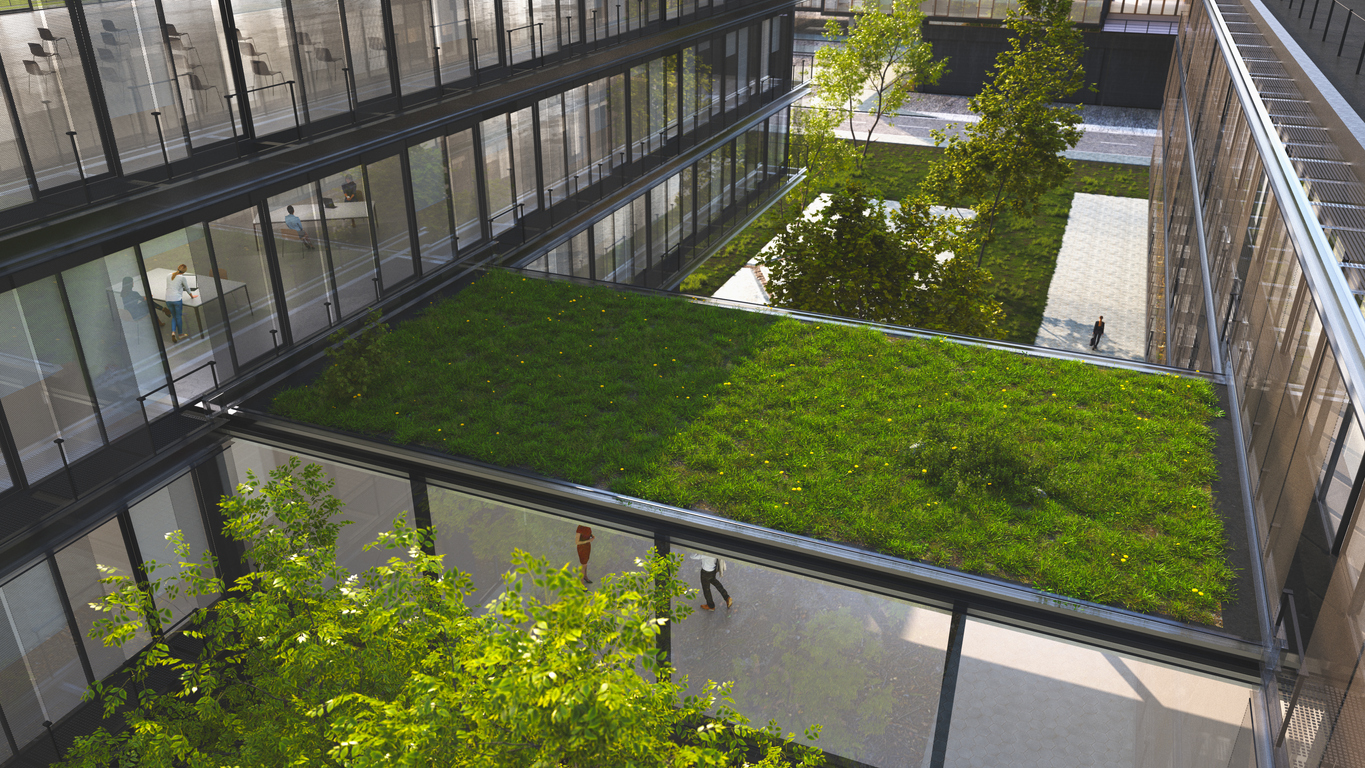In the UK, the residential real estate sector is witnessing a significant transformation, driven by the imperative to address climate change and enhance social well-being. This evolution is characterised by a profound shift in Environmental, Social, and Governance (ESG) strategies, reflecting a broader commitment to sustainability and social impact. This blog delves into how developers are innovating to generate positive community benefit and are working tirelessly to reduce the carbon footprint of residential construction through various sustainable practices.
Social impact projects: pioneering positive change
Developers across the UK are increasingly embedding social impact projects into their core business strategies, recognising their role in fostering community well-being and resilience. These initiatives range from affordable housing schemes and community engagement programs to investments in local infrastructure and services. By prioritising social value, developers are not just building homes; they are nurturing vibrant, sustainable communities.
Affordable housing and community engagement
A pivotal area of focus is the development of affordable housing, aimed at addressing the acute shortage of accessible and cost-effective living spaces. By integrating affordable units into new developments, companies are directly contributing to alleviating the housing crisis, making communities more inclusive.
Developers are engaging with local communities through consultations and participatory planning processes. This inclusive approach ensures that new developments meet the real needs of residents, fostering a sense of ownership and belonging. Initiatives such as public spaces, community centres, and local job creation further cement the relationship between developers and the communities they serve.
Investment in local infrastructure
Beyond housing, significant investments are being made in local infrastructure, including schools, healthcare facilities, and green spaces. These projects not only enhance the quality of life for residents but also contribute to the economic and social vitality of local areas. By supporting sustainable local development, real estate companies are playing a crucial role in shaping resilient communities that can thrive in the face of future challenges.
Reducing the carbon footprint of residential construction
The construction sector is a major contributor to carbon emissions, but the tide is turning. Developers are adopting innovative strategies to minimise the environmental impact of residential construction, focusing on embodied carbon, the circular economy, and the reduction of construction waste.

Embodied carbon and circular economy
Embodied carbon refers to the CO2 emissions associated with the materials and processes involved in building construction, from extraction and manufacturing to transportation and installation. By prioritising materials with lower embodied carbon, such as timber or recycled steel, developers can significantly reduce the environmental footprint of new homes.
The circular economy model is gaining traction in the construction industry, emphasising the reuse and recycling of materials. This approach not only reduces waste but also conserves resources and minimises the demand for new materials. Developers are exploring ways to incorporate circular principles into their projects, from designing buildings for disassembly to using reclaimed materials in construction.
Reducing construction waste and innovating construction methods
The construction industry is notorious for generating significant waste, but innovative waste management strategies are beginning to make a difference. Developers are implementing rigorous waste sorting and recycling protocols, aiming for zero waste to landfill. The adoption of pre-fabrication and modular construction techniques is helping to reduce on-site waste, as components are manufactured to precise specifications in controlled factory settings.
Innovation in construction methods also plays a vital role in reducing the carbon footprint. Techniques such as 3D printing and the use of sustainable building materials like hempcrete are pushing the boundaries of what is possible, offering greener alternatives to traditional construction methods.

The road ahead
The evolution of ESG strategies in the UK's residential real estate sector reflects a growing recognition of the industry's responsibility to the planet and its people. By championing social impact projects and embracing sustainable construction practices, developers are not only mitigating their environmental impact but also enhancing the social fabric of the communities they serve.
This shift towards sustainability and social responsibility is not just a trend but a fundamental change in how residential real estate is conceived, developed, and inhabited. As we move forward, it is imperative that these initiatives continue to evolve, driven by innovation, collaboration, and a steadfast commitment to creating a better, more sustainable future for all.
The residential real estate sector is at the forefront of a transformative journey, redefining the meaning of home and community in the 21st century. Through the lens of ESG, developers are paving the way for a future where the built environment harmonises with the natural world, and where communities are empowered to flourish. This evolution of ESG strategies is not merely a response to the challenges of today but a visionary approach to building the sustainable, resilient, and inclusive societies of tomorrow.